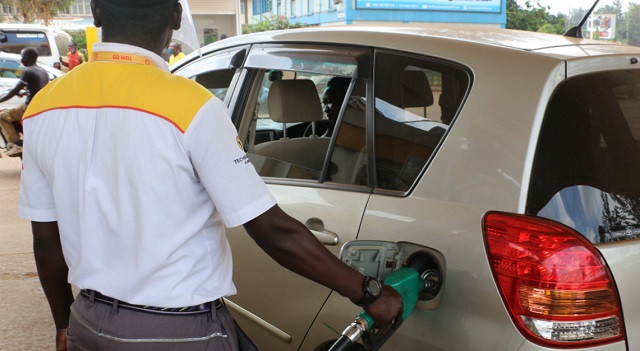BUSIA, UGANDA: The traffic situation at the Busia border post on the Uganda-Kenya border has now normalized, while the backlog at the Malaba post is due to be cleared by the end of this week, according to Uganda Revenue Authority (URA).
This follows more than two weeks of intensive activity to clear cargo trucks crossing into Uganda, after a crisis that was caused by a 10-day strike by truck drivers. Petroleum products are the biggest single item in the cargo that has been cleared, accounting for almost two out of every ten 10 trucks.
Despite this however, the retail fuel prices in the country have not responded accordingly yet, with prices remaining around sh5,000 per liter of petrol and 4,000 for diesel.
According to Uganda Revenue Authority-URA, when the government, together with the East African Community agreed that Uganda stops charging truck drivers for the COVID-19 test, the tax body sent in more staff to clear the backlog in the shortest time possible.
By that time, around January 12, reports from the border indicated that the traffic to Busia and Malaba entry points had swollen to several kilometers. This led to an abrupt scarcity of fuel in Uganda and accelerated the rate at which the prices were already rising.
“We have exceeded the daily target that we had set ourselves to clear 1,500 trucks per day, and we are now handling more,” said URA in a statement about the clearance exercise.
On Sunday, a total of 1,576 trucks were cleared at the borders, with 131 carrying fuel bound for Uganda, while the traffic had reduced to 3 kilometres at Malaba and but slightly increased at Busia, as more trucks came in from Kenya.
On Saturday, traffic at Busia had reduced to 400 metres from three kilometres on Friday, while at Malaba it had dropped from 3.2 to 3 kilometres. URA could not tell how much fuel in litres has so far been cleared for delivery in the country since the strike ended.
However, since the arrival of the first trucks in the first days after the strike, prices have slightly dropped to between sh4,950 and sh5,100 per litre of petrol, from as high as 6,000 Shillings two weeks ago.
By the end of December 2021, prices of petrol had risen to around 4,200 Shillings a litre and 3,800 for diesel, an increase of about sh400 a litre from March 2021 prices. This was attributed to the high global crude oil prices which was reportedly due to increasing demand as economies recovered from the effects of COVID-19 lockdowns.
Also producing countries had cut down on production in response to a fall in the global demand, and in October, they agreed to start raising output by 400,000 barrels a month, despite pressure to release more due to the fast-rising demand.
Analysts say that this increase in volumes is too little and cannot match the rate at which demand is rising. Back home, the scarcity caused by truck drivers therefore only abetted the already existing issue of rising prices.
“The prices will not fall much until the marketers fill up their reservoirs, but before that, they will remain high. Even then, it is expected that they will want to first sell off all the cargo that was held up in the strike, at a high cost, because they spent a lot of money on it,” said a senior official at URA on condition of anonymity.
Effectively, this means that it would take a bit longer for prices to go down significantly, if they were to.
However, the fact that there are many factors leading to the high prices, especially external factors like a global rise in crude prices, it is expected that the prices will hardly go down to levels below 4,000 shillings a litre petrol, or 3,400 for diesel.
Do you have a story or an opinion to share? Email us on: dailyexpressug@gmail.com Or follow the Daily Express on X Platform or WhatsApp for the latest updates.

